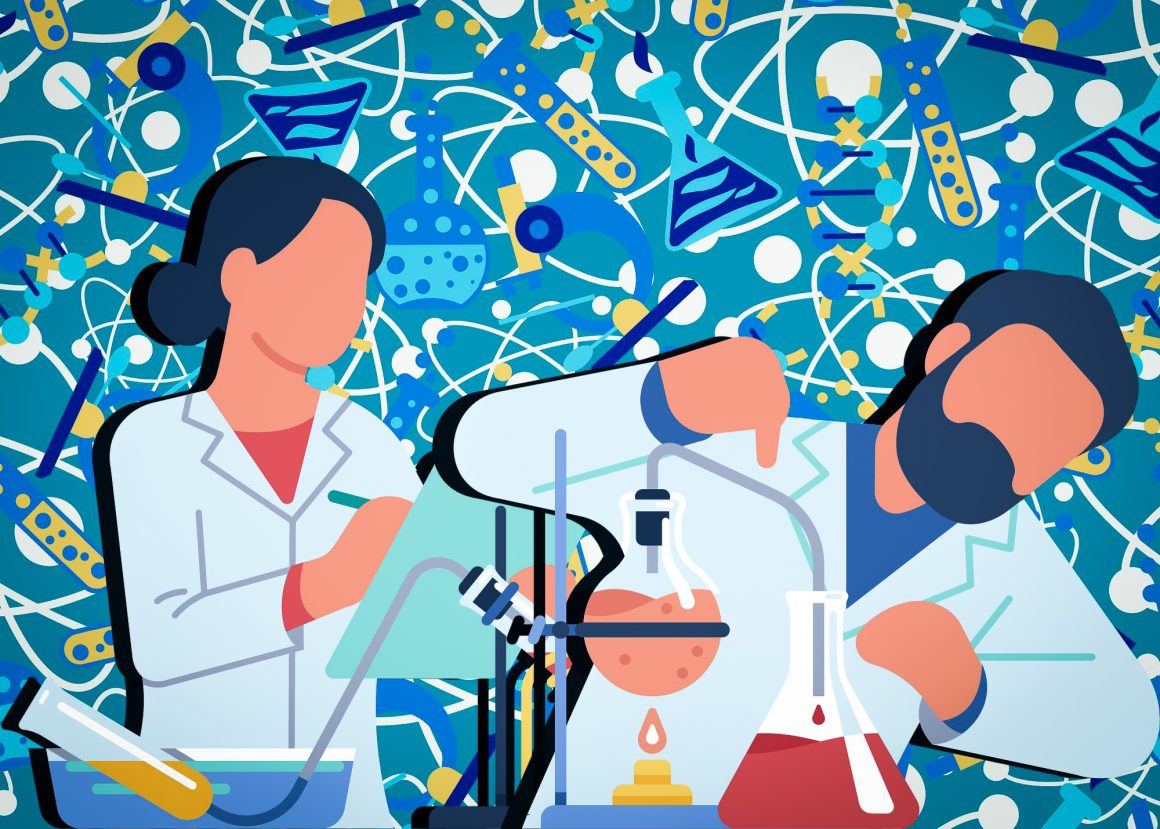
The importance of in-person interaction in breakthrough discoveries
By Jonathan Barazzutti, December 23 2023—
Teams of scientists who collaborate in person make more breakthroughs than teams of scientists who work remotely, a new study suggests.
Researchers Yiling Lin and Lingfei Wu at the University of Pittsburgh and Carl Frey at the University of Oxford analyzed 20 million research articles and four million patent applications from around the world and found that across all fields, periods and team sizes, researchers in remote teams are consistently less likely to make breakthrough discoveries than researchers in on-site teams.
To measure the degree to which a publication is disruptive, they used a form of citation analysis called a D score, which ranks publications on a scale from negative one to one based on their disruptiveness. Publications are considered more disruptive if subsequent works cite them while not citing the works the publication itself cited and built on. Such studies are considered innovative and foundational to future work as they are cited in place of works published before.
With the rise of the internet and thus the increase in reach that researchers have to pool together a group of people with diverse sets of knowledge that are more relevant to a particular research inquiry, there is the assumption that innovation in research will improve. This is because these greater sets of knowledge that a team spanning a wider range would have are argued to increase the quality of the research from the said team. The study in fact finds that teams with remote collaborators have greater sets of collective knowledge to work from.
However, at the same time, teams which work together remotely integrate less well due to that lack of in-person interaction. That means that these teams are less likely to engage in conceptual tasks. This explains why in-person teams with less diversity in knowledge have a higher chance of making innovative and disruptive scientific discoveries.
This research suggests that in-person interaction is more likely to make breakthrough discoveries, which points to the importance of students in the University of Calgary community looking within their community to collaborate effectively in research. Luckily, programs such as Undergraduate Research Summer Studentships allow undergraduate students to undertake collaborative research within our community. Students who submit research proposals can receive up to $7500 of financial support for undergraduates to conduct research for anywhere from eight to 16 weeks during the spring and summer semesters. Our extensive research opportunities for undergraduate students contribute to the UofC’s ranking as one of Canada’s top 10 research universities.
But it doesn’t have to be a professor mentorship. Research can even be done with fellow students. Every year, the UCalgary Students Union hosts an Undergraduate Research Symposium where undergraduate students can showcase a research project they worked on. Out of curiosity, I took a peek at the display for their most recent symposium in November and found a range of research projects in both the sciences and the humanities. Many of these papers had an extensive number of students working on them collectively, and they had the opportunity to present and share their accomplishments publicly, with awards for top projects.
So, if you are interested in doing research and having it positively impact the world, you don’t have to network with people halfway around the globe. It is as simple as talking to your fellow students or your professors. See who in your community shares your interests and would be interested in collaborating on a research project. And who knows? Maybe your research will become the next breakthrough discovery.
